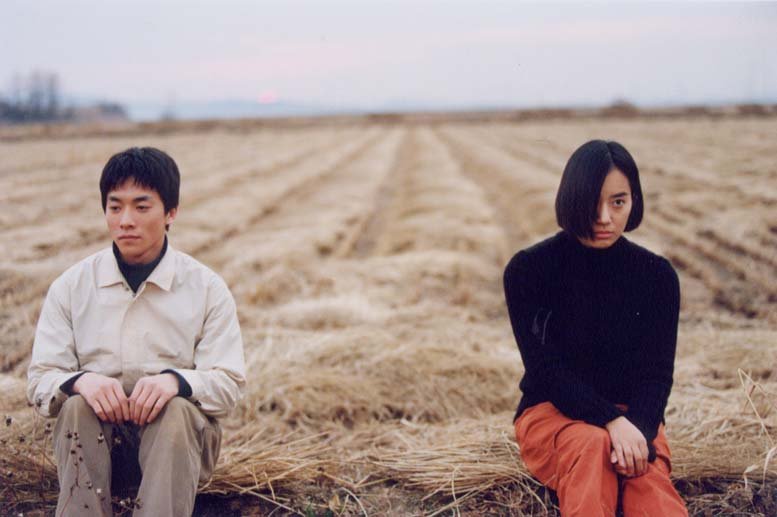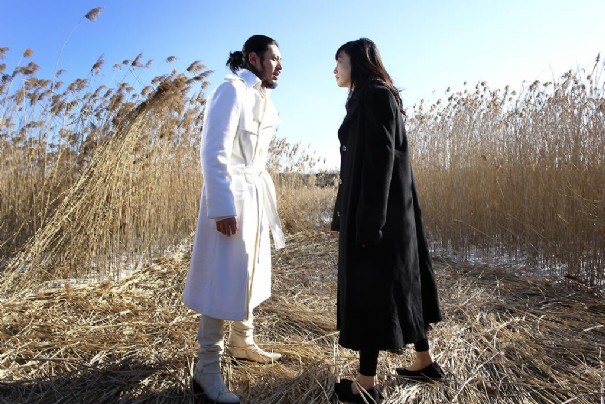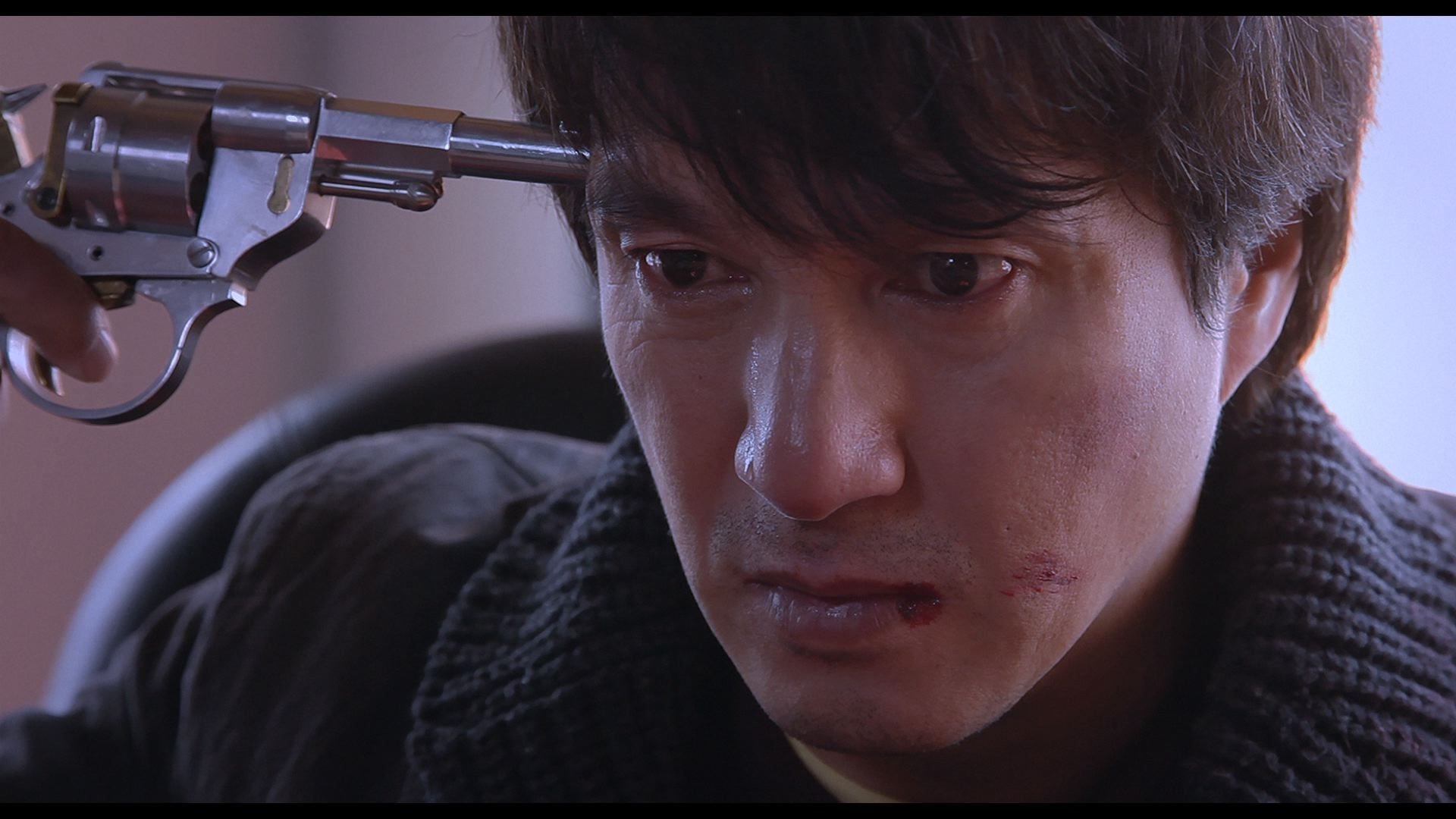6. Intermingling love and hate

For Kim Ki-duk, love and hate are two inseparable notions, with his characters feeling both towards the people around them, in a tendency that results from the way they feel for themselves.
Han-ki in “Bad Guy” feels like that for both Sun Wha, the woman who he forced into prostitution for one of his pimps. Kang-do hates the woman who claims to be his mother, but as his longing for a mother grows, he ends up considering and loving her as such.
Jin-a, the prostitute in “Birdcage Inn”, hates the way the members of the family treat her, but since she longs to belong to a family, she starts loving them as actual relatives. Chang Duk in “Address Unknown” loves his mother, but ends up hating her to the point of beating her, as he feels shame from continuous disgrace.
7. Surrealism

The excess of reality is another one of Kim Ki-duk’s traits, although in some occasions, it is elaborately mixed with realism. A distinct sample of this fact is the ending concept of “3-Iron”, when Tae-suk becomes so proficient at hiding in plain sight, that he manages to stay in the same house with Sun-hwa and her husband, without the latter realizing his presence.
Furthermore, in “The Bow”, the concept of the girl who predicts fortunes as she swings in front of the Buddha image on the side of the boat, while the old man is shooting three arrows at her, is obviously surrealistic.
The same applies to the general concept in “Spring, Summer, Autumn, Winter… and Spring”, although this time with a definite religious tone. Lastly, “In Dream” is distinctly surrealistic as it mixes the world of dreams with the real world.
8. Tendency to shock

This characteristic is one of the most obvious in Kim Ki-duk’s filmography, and he cultivated it in a continuously growing degree until its apogee, in “Moebius”. This element usually derives from extreme violence or sex, although it is not limited to these. Kim manages to shock all the senses, while surpassing the sensitivities of most audiences.
Furthermore, the fact that the shock frequently appears among scenes and images of beauty and lyricism, makes its impact even more intense. Lastly, on most occasions, Kim managed to offend different social groups, particularly feminists and animal lovers.
Regarding the second category, in “Address Unknown”, the story of Chang-guk and Dog Eyes, who butcher dogs to sell their meat in local diners, is quite shocking and grotesquely depicted. The same applies to the gutting of live fish in “The Isle”. This film also features one of his most onerous scenes, the one where Hee-jin places fish hooks inside her vagina, after Hyun-shik has tried to commit suicide by placing them in his mouth.
In “Pieta”, the whole concept of the poor shop owners forced to amputate in order for the loan shark to receive the insurance money, is shocking both visually and as a concept for the consequences of extreme capitalism. The film, however, does not stop there as it includes cannibalism, animal cruelty, incest and suicide, and almost every notion considered despicable.
This trait finds its apogee in “Moebius”, even from the initial scene, with the castration of the son’s penis by his mother, who even proceeds to swallow it. Apart from that, the film includes scenes of self-mutilation during sex, misogynism, and Oedipal complexes, with the last notion becoming even stronger by the fact that Kim has the same actress, Lee Eun-woo, playing both the mother and the lover of the son.
Another shocking moment, although without the sex and the violence, is when Han-ki finally speaks in “Bad Guy”, with his squeaky voice having a stupefying impact on the spectator.
9. Unusual narrating

The narrative structure of Kim Ki-duk’s films is not the one usually appearing in films with the obvious beginning, climax and ending, and the single point of view. On the contrary, as his narration is based more on the image than the dialogue or the actual story, Kim keeps it mixed and unexpected.
In “Samaritan Girl”, for example, about 40 minutes into the film, the narrative undergoes a radical shift in the point of view, as Yong-gi, Yon-jin’s father, becomes the central character, totally changing the perspective of the film, as, up to that moment, it derived from the way the girls watched the world.
Furthermore, in the last chapter titled Sonata, the narrative changes once more from the thriller it has become, as father and daughter take a trip together in the remote countryside, where he teaches her to drive.
In “3-Iron”, the narrative also changes twice. Initially, it portrays Tae-suk’s strange tendencies towards other people’s houses, then it goes on to life in prison, and then, in surrealistic fashion, the common life of the three characters inside the house.
The most erratic and illogical narrative, however, occurs in “Stop”, although this time, it does not arrive at any concrete or even logical conclusions.
10. Ending open for interpretation

Following the unusual narration and the unique style of Kim Ki-duk, the ending of his films could not be regular, as, in most cases, it is open for interpretation. This tactic derives from a general message that permeates Kim’s works: “It’s hard to tell whether the world we live in is either reality or a dream.” However, most of his endings are wonderfully photographed and often lyrical.
In “The Isle”, as Hyun-shik is wading in the water to a completely isolated island, Hee-jin floats naked on her back in a sinking boat, with the focus being on her pubic hair. Nevertheless, it remains unclear whether she is alive or dead, and the only thing clear is the complete isolation of the couple to everyone but each other.
In “Bad Guy”, as Han-gi and Sun-hwa stop the van on the side of the road, in order for the girl to offer sex for money once more, it is unclear if these events are real or if Han-gi is just dreaming.
In “The Bow”, in surrealistic fashion, the old man commits suicide by falling into the ocean, the girl loses her virginity without obvious cause, and his last arrow falls between her legs. The fishing boat sinks to the sea, like the old man, as the girl is finally escaping the boat along with her boyfriend.
These scenes make it almost impossible to understand Kim’s intentions and the actual meaning of the end, but as he has stated: “People can choose whatever they want to see in my films. I leave the choice up to the audience.”
Author Bio: Panos Kotzathanasis is a film critic who focuses on the cinema of East Asia. He enjoys films from all genres, although he is a big fan of exploitation. You can follow him on Facebook or Twitter.